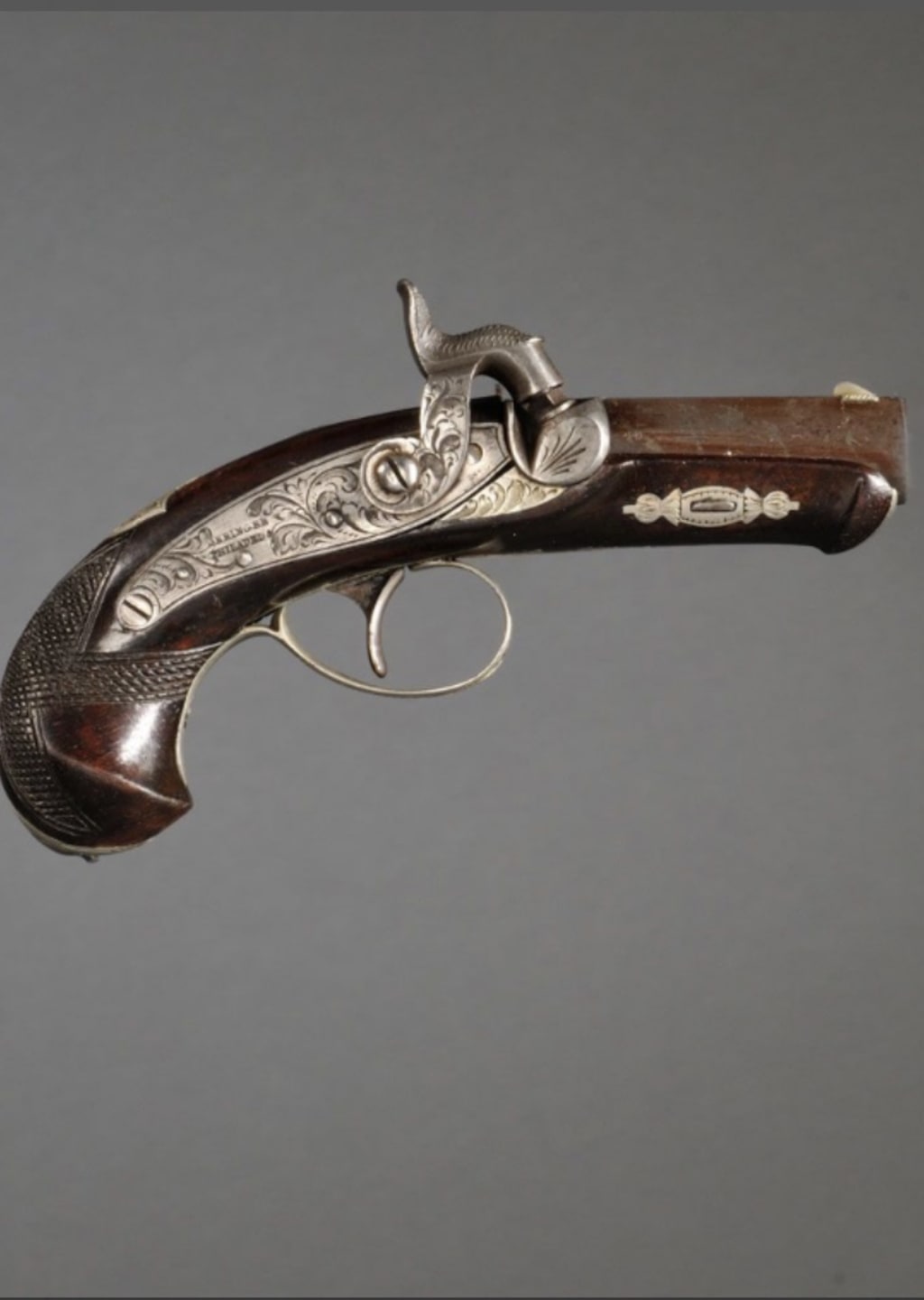Witness To Tragedy
Amazing Attendance at Assassinations

What would you think of a man who was present and yet not at all involved in 3/4 of the in-office assassinations of United States' Presidents. His proximity to untimely death made him feel "cursed." We might think this was a particularly unlucky person. Yet he was born as the closest thing we have to a royal family in the United States. Robert Todd Lincoln was born to President Abraham Lincoln and Mary Todd Lincoln on August 1, 1843. He winessed death early and often as he was the only Lincoln child of his parents' four children to live to adulthood. Although, even then, he might have died an untimely death in his youth were it not for the sudden actions of a stranger whose surname would eventually be infamous.
We all know what happened to the young man's father, Abraham Lincoln on April 15, 1865. John Wilkes Booth, an actor with strong Confederate sympathies, was in a play and came up to the gallery of Ford's Theater where the President and his wife were seated and shot President Lincoln in the head with a single shot Derringer. Lincoln lingered for a only a little while before dying, but it was long enough for him to be taken still alive to the Petersen House, a row house built in 1849 by William Petersen, a German Tailor, very near Ford's Theater in Washington, D.C. Robert Todd Lincoln, then just 21, rushed to be with his father and was present at his bedside when his father passed.
Interestingly, he may not have lived to see his father's sudden demise. A year or so earlier, in late 1863 or early 1864, on a train platform in Jersey City, New Jersey, Robert Lincoln was waiting for a train when a rush of people attempting to get tickets for sleeping cars pinned him against a train just as the train started to move. He was twisted off of his feet and started to slip helplessly through the area between the train and platform where he likely would have been crushed by the moving train. Instead, an attentive and dextrous individual grabbed the falling Lincoln by the lapel of his jacket and muscled him back upon the platform unharmed. Lincoln said that he recognized the man as Edwin Booth, an actor. Although Booth did not recognize the man he saved as the President's son, he remembered helping a falling train station passenger. General Ulysses S. Grant recounted the story around 1864 to Colonel Adam Badeau, who happened to be a friend of Booth's. Colonel Badeau sent a letter to Edwin Booth thanking him for his heroism and informing him of the life he saved. If the last name and occupation of Edwin Booth sound eerily familiar, it is because it was the brother of John Wilkes Booth. At the time, the Booth family's murderous brother had yet to put his deadly plan to action. Nonetheless, one had killed a Lincoln while the other had saved one. It is said that Edwin Booth took some small solace in the fact that he had saved the younger Lincoln after his brother killed the President.
Robert Lincoln matriculated to Harvard College and Law School and served for a short time as a Captain on the Staff of Ulysses S. Grant in the Union Army as the Civil War ended in 1865. After his father's death, he took his young family to Chicago where, over time, like his father, he built a successful law practice. Again, like his father, public service called to him and he accepted the invitation of President James Garfield to be the President's Secretary of War (now Secretary of Defense) where he served from 1881-1885.
President Garfield invited Robert Lincoln and his family to go with the President on a trip to New England, where the President planned to vacation and speak at his alma mater, Williams College. It was July 2, 1881, about 9:20AM and Robert Lincoln went to meet the President to let them know that his family would not be leaving until July 3, 1881. As President Garfield walked through the Baltimore and Potomac Railway Station with his two teenage sons and Sectetary of State, James G. Blaine, Robert Lincoln was 40 feet away and closing on the President. A disgruntled Republican Party supporter who felt he was passed over for a patronage appointment in the Garfield administration, Charles Giteau, suddenly shot and mortally wounded the President in the waiting area. Robert Lincoln was an eyewitness to the shooting and called one of the multiple physicians to the scene. As we all know, James Garfield later died from infection due to his wounds.
Robert Lincoln remained in public life as the ambassador to the United Kingdom from 1889 through 1893 under President Benjamin Harrison. He returned to his law practice after these years of service. Nonetheless, his service to the country remained appreciated by high ranking political figures into the turn of the century. President William McKinley invited Robert Lincoln to the Pan-American Exposition in Buffalo New York on September 6, 1901. Lincoln was just outside of the exposition center where an anarchist, Leon Czolgosz, shot the 25th President, mortally wounding him.
He is the only known person present or near the shootings of three American Presidents.
Robert Lincoln, died peacefully in his sleep at almost 83 years old on July 26, 1926. Before he died, he refused to accept any other presidential invitations to events saying, "No, I'm not going, and they'd better not ask me, because there is a certain fatality about presidential functions when I am present." Peters, James Edward, Arlington National Cemetary: Shrine to America's Heroes (2nd Ed.), Woodbine House (1986), p. 126.
The man whose three siblings tragically died before adulthood, also witnessed the untimely death of his father, perhaps the greatest American President in history. He became a great statesman in his own right, who then was ultimately present for the the mortal woundings of 3/4 of the four U.S. Presidents who died from their assassin's bullets. Yet, quixotically, his very life may have been saved earlier so he could be present at these three tragedies by the brother of his father's assassin. These are the confluences of circumstances, serendipity, fate, coincidences or just dumb luck that recall the words of Mark Twain, who said, "Truth is stranger than fiction, but it is because Fiction is obliged to stick to possibilities; Truth isn't."
About the Creator
Thom Tyler
Stephen King relates a story in "Dance Macabre," about people saying "they should be writers." Mr. King opines that if you think you "should" be a writer, you probably aren't. Writers write because they're compelled to. And, so here I am






Comments
There are no comments for this story
Be the first to respond and start the conversation.